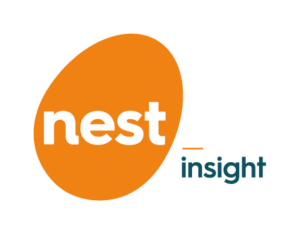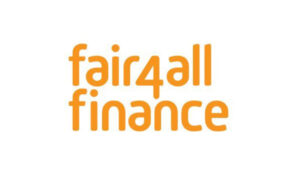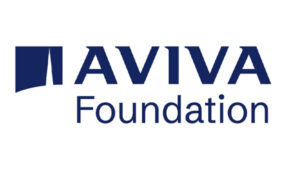- Around 25 million people in the UK could be affected by income volatility[1]. Nest Insight’s research, published today, is the first to reveal the everyday challenges facing them as they manage their financial lives.
- The households participating in Nest Insight’s study experienced an average of £500 variation from their average income each month. This unpredictability leads to financial disadvantage and a constant mental load as people deploy ingenuity and flexibility in managing their finances from day to day.
- With irregularity a major element of working life, including as a result of self-employment and variable shift patterns and rates of pay, Nest Insight’s work will inform the finance industry, policy-makers and employers, as they work to reflect the needs of those living in households whose income dips and spikes.
Today, Nest Insight publishes new research that reveals the ‘volatility premium’ experienced by millions of households in a world where financial products, policies, and employment practices are often designed for those whose income is regular. Working with 51 low and moderate income UK households for almost a year, Nest Insight, and its academic research partners from Glasgow Caledonian University and the Centre for Personal Financial Wellbeing at Aston University, found that income volatility affects a wide range of households and is not limited to the lowest earners. Today’s report identifies the ‘volatility premium’ as a significant but often overlooked cost which is both financial and about broader quality of life, and which affects millions of UK households.
Key findings:
- Financial costs of volatility: On average, households in our study experienced over £500 variance from their average income each month. This volatility results in financial disadvantages. These include fees for falling behind on bills, higher costs for credit and insurance, and missed opportunities to benefit from cost-effective financial products, such as direct debits.
- Psychological & Emotional Costs: The stress of managing an unpredictable income places a significant mental load on people and households. The households in the study described the stress of the constant need to monitor and adjust spending, coupled with the fear of falling behind on bills. This can lead to an overwhelming focus on the present, which crowds out planning and saving for the longer-term, including pension contributions.
- Long-term impacts: Households on volatile incomes are often unable to save effectively or make investments for the future. They miss out on opportunities to improve their financial standing, such qualifying for credit, building savings, or participating in government saving schemes.
The report concludes that the public, private, and community sectors all have opportunities to better meet the needs of households whose incomes are volatile. Through a combination of inclusive policy design, employer initiatives, financial sector reforms, and community support, the report suggests ways in which the financial and mental strain for people affected by volatile incomes could be reduced. This could ensure greater financial stability for households and improve the overall resilience of the economy: people who are weighed down by the mental load of managing in a system not designed for their needs are not able to fully participate and perform to their potential.
Sope Otulana, Head of Research at Nest Insight, said: “For millions of people in low and moderate-income households throughout the UK, irregular pay is the norm. If your income dips and spikes, you’ll struggle to take advantage of direct debits or cheap deals, you’ll find sources of emergency credit inflexible and might be drawn towards ‘payday’ loans. Government initiatives to help you save money might not fit with your irregular pay schedule, and you might not have the time and headspace to find out about them and sign up. Above all, you’ll most likely be experiencing a stressful mental load and having to deploy maximum ingenuity to manage household finances when the financial system doesn’t really work for you.
“Creating a more inclusive financial system that supports people on irregular incomes is not only a matter of social equity but also increases the potential of households to participate in long-term economic . Our findings and recommendations are actionable steps to ensure that the UK’s financial system works for everyone, particularly those who face the daily struggle of managing unpredictable incomes.”
Kate Pender, CEO of Fair4All Finance said: “Right now, the financial system is designed for people with predictable lives and incomes. Yet more and more people are living with insecure jobs and unsteady incomes. This report shines an important light on the impact this has on millions of people, from the stresses of trying to manage unpredictable budgets to missing out on the long-term planning and savings that can lead to greater financial resilience and wellbeing.
“We know it doesn’t have to be this way. The financial services industry has a big part to play in developing flexible products and services that are tailored to all their customer’s needs, including those on volatile incomes and in financially vulnerable circumstances. Doing this can help create a fairer financial services system that works for everyone, improve the lives of millions of people and boost economic growth across the country.”
Nest Insight is grateful to the Aviva Foundation, Fair4All Finance and the Money and Pensions Service for their support of this project.
[1] Estimate based on research from the Resolution Foundation that found that four out of five low income earners in the UK have volatile pay, and so do two thirds of those on more moderate incomes.
ENDS
Notes to editors
For more details about the Real Accounts project, please visit Real Accounts: a long-term study of UK households’ financial lives – NEST Insight Unit
Read the report: Fluctuation Nation: Lifting the lid on the millions of people managing a volatile income (PDF)
For more information, or to request an interview with a spokesperson or case study, please contact: Claire Maugham claire.maugham@nestcorporation.org.uk
About Nest Insight

Nest Insight is a public-benefit research and innovation centre. Our mission is to find ways to support people to be financially secure, both today and into retirement. We conduct rigorous, cutting-edge research, working collaboratively with industry and academic partners to understand the financial challenges facing low- and moderate-income households. We use these data-driven insights to identify and test practical, real-world solutions. Our findings are shared widely and freely so that people around the world can benefit from our work. For more information, visit nestinsight.org.uk
About our programme partners

Fair4All Finance is a non-profit working to make the financial services system fairer for everyone. They exist to transform the system so that everyone has access to the right products and services, whenever they need them. Their funding comes from the Dormant Assets Scheme which makes it possible for money from forgotten bank accounts to be used to help good causes. For more information, visit fair4allfinance.org.uk/about-us/

The Money and Pensions Service (MaPS) vision is ‘everyone making the most of their money and pensions’. MaPS is an arm’s-length body committed to providing access to the information and guidance people across the UK need to make effective financial decisions over their lifetimes. For more information, visit maps.org.uk

The Aviva Foundation aims to help people and communities feel in control and positive about their financial futures. Millions in the UK are struggling and worried about money. The Foundation funds organisations working on new ways to help people prevent and prepare for financial challenges, or deal with and recover from financial setbacks. The Foundation gives organisations the support and stability they need so they can use their expertise to innovate and transform the lives of those who need it the most. For more information, visit aviva.com/sustainability/aviva-foundation/
About Nest Insight’s strategic partner

BlackRock is a global investment manager serving the UK market for more than 30 years with a purpose to help more and more people experience financial wellbeing. BlackRock’s Emergency Savings Initiative is made possible through philanthropic support from the BlackRock Foundation and the BlackRock Charitable Gift Fund. The initiative brings together partner companies and non-profit financial health experts to make saving easier and more accessible for low- to moderate-income people across the US and UK, ultimately helping more people to establish an important financial safety net. For more information, visit blackrock.com/corporate/about-us/social-impact
About Nest Insight’s research partners
The Centre for Personal Financial Wellbeing at Aston University is an interdisciplinary, academic, research centre that seeks to get to the heart of the causes and consequences of personal and household financial insecurity. It focuses on providing accessible and timely insights to support a wide range of leaders and decision makers including those in the financial service industry, third sector organisations, academics as well as the general public. For more information, visit aston.ac.uk/cpfw
Glasgow Caledonian University (GCU) is shaping society, influencing governments and transforming people’s lives around the world. GCU delivers research with outstanding impact, and the 2023 UK Research Excellence Framework classified 91% of their health research as world-leading or internationally excellent for its impact. GCU’s Yunus Centre for Social Business and Health runs the FinWell programme, a financial diaries research project evidencing how a better understanding of community-based and health-focused initiatives can improve lives. See gcu.ac.uk
Moneyhub works with clients to improve the financial wellness of people. Hundreds of companies use its award-winning Open Banking and Open Finance technology to understand their customers better through data. With Moneyhub, businesses can deliver more suitable products, comply with Consumer Duty, and automate money management or payments to increase consumers’ capacity to spend, save or invest more. To give the gift of financial wellness, and reap the rewards, visit www.moneyhub.com







